The ministry of agriculture forestry and fishers, so-called “MAFF”, will hold a public seminar for citizens about how to enjoy Japanese teas in the “room for consumers” from 15th to 17th November.
In this event, Japanese tea instructors will serve 5 kinds of specialty teas awarded in Japanese Tea Award 2016. Two of them are specialty teas produced in Shizuoka prefecture.
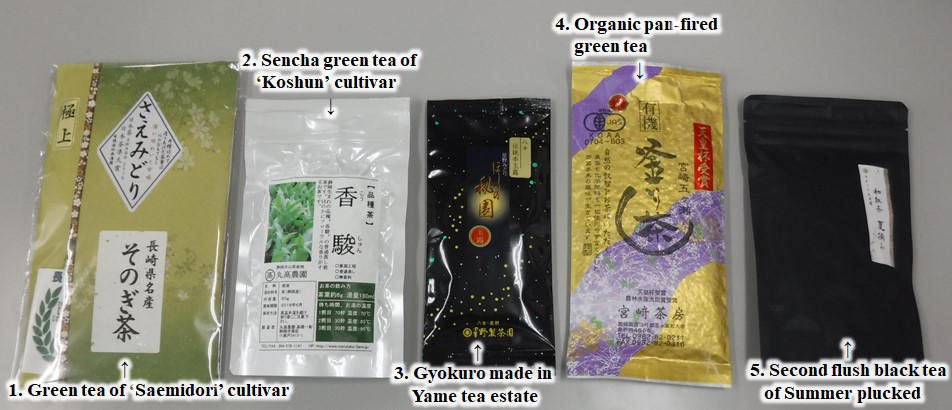
I’d like to share the information of these teas.
1. Green tea of ‘Saemidori’ cultivar made in Sonogi tea estate in Nagasaki pref.
Green tea of ‘Saemidori’ cultivar has been gaining its popularity due to its color of brilliant green and mild taste. Infusion in lower temperature successfully provide an umami-rich tea with bright color like emerald.
The ‘Saemidori’ green tea served in the event was awarded as the best prize in the Japanese Tea Award 2016. This tea is produced in East Sonogi tea estate in Nagasaki prefecture.
I’d like many people to enjoy the flavor of the ‘Saemidori’ green tea.
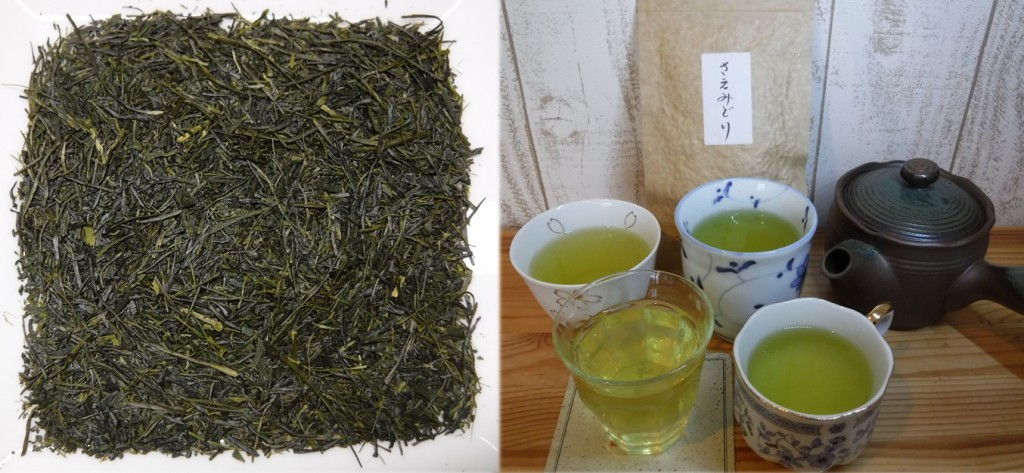
An example of ‘Saemidori’ green tea.
It seems that farmers tend to more deeply steam tea shoots of ‘Saemidori’ cultivar. I think they intend to produce more brilliant green color.
2. Sencha green tea of ‘Koshun’ cultivar produced in Honyama tea estate.
Aromatic Sencha of ‘Koshun’ cultivar will delight you due to its fresh fragrance like harb and flower with milky scent. Marutaka farm, the producer of the tea, has a marvelous skill controlling withering and steaming tea leaves with keeping less evaporation of aroma compounds.
In addition to this ‘Koshun’ green tea, Marutaka farm produces various aromatic tea based on their prominent skills and by using a variety of cultivars, including their originally generated cultivar. Their original grown cultivar ‘Kouju’ has a wonderful sweet aroma like grapes!! Hopefully we could buy the special aromatic tea ‘Koshun’ and ‘Kouju’ in Tokyo Tea Party.
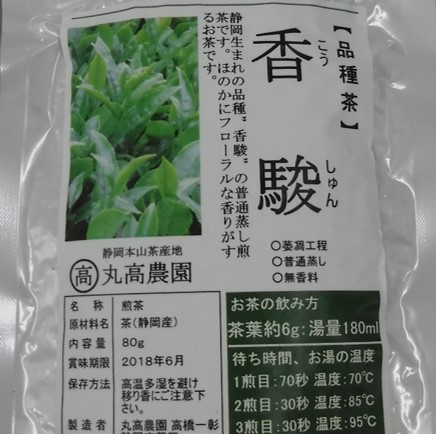
The package of Sencha of ‘Koshun’ cultivar produced by Marutaka Farm.
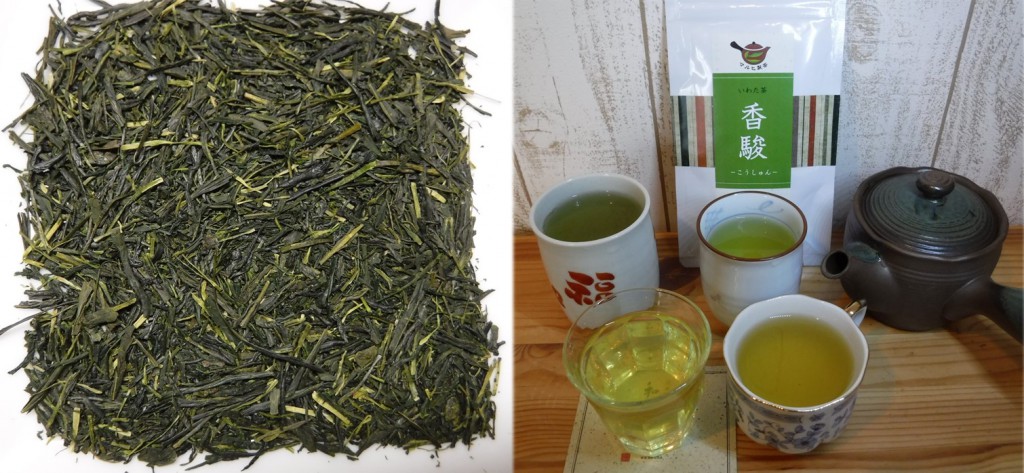
An example of ‘Koshun’ green tea produced by Maruhi Seicha Tea Factory in Iwate tea estate in Shizuoka pref.
3. Gyokuro green tea produced in Yame tea estate in Fukuoka pref.
Yame tea estate is one of the biggest and most sophisticated tea estates of Gyokuro production. Gyokuro is a special type of Sencha green teas. The tea shoots are cultivated under the shade for 7-14 days till plucking, resulting in denser green color of tea shoots, larger leaf area and thinner thickness of tea leaves. These changes indicate increase in chlorophylls and gain in softness of tea leaves. In addition, metabolism of nitrogen and the subsequent synthesis of catechins are suppressed. These change in constituents provide richer umami and less bitterness and astringency.
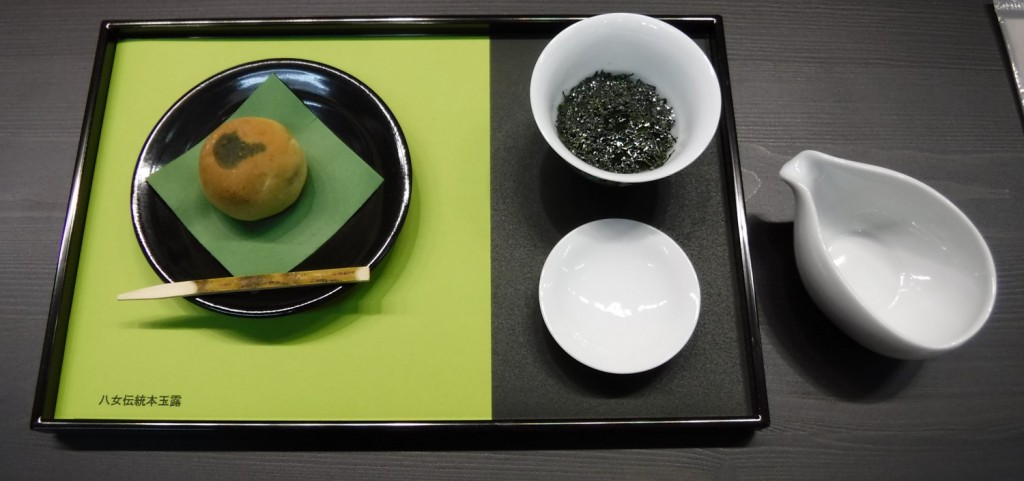
An example of Gyokuro served in the manner of “Susuri cha” with a Japanese confection in World Tea Festival 2016 held in Shizuoka prefecture.
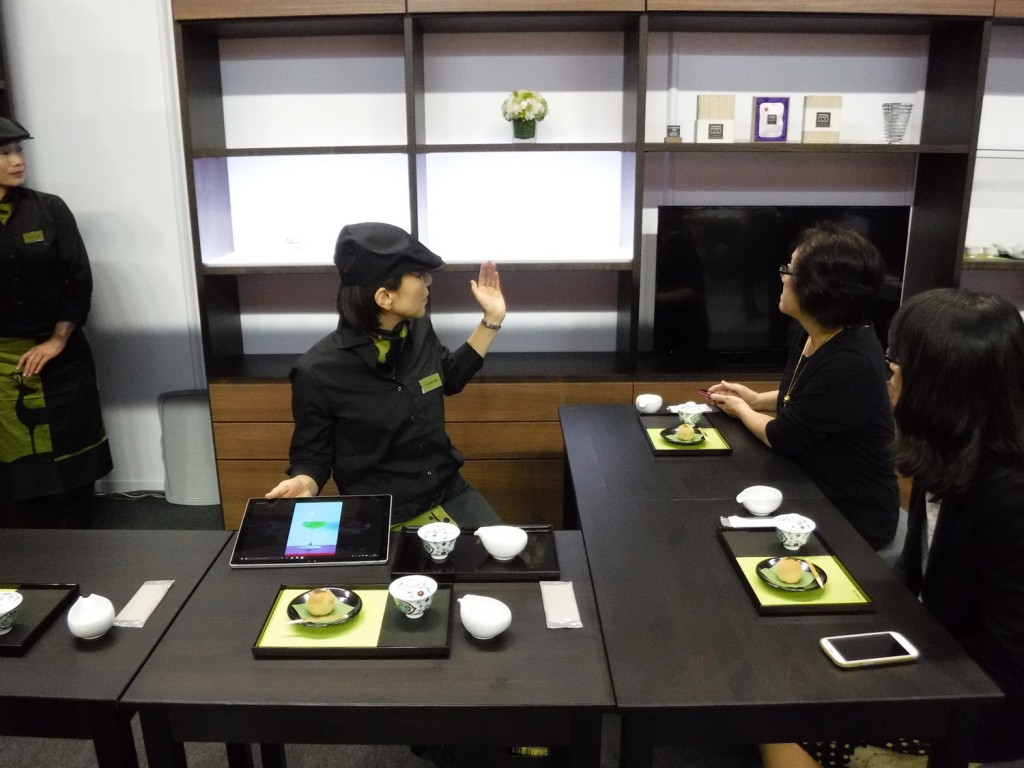
In World Tea Festival 2016 held in Shizuoka, the professional staffs served Yame Gyokuro and explained many about Yame Gyokuro.
4. Organic Pan-Fired Tea produced in Gokase tea estate in Miyazaki pref.
Speaking Japanese pan-fired tea, In Miyazaki prefecture, there are several leading tea estates of pan-fired tea production. Gokase tea estate is one of them. Miyazaki Sabou co ltd. is the most famous leading company of pan-fired tea. Many tea farmers visit the company to learn its skills to produce pan-fired tea the best.
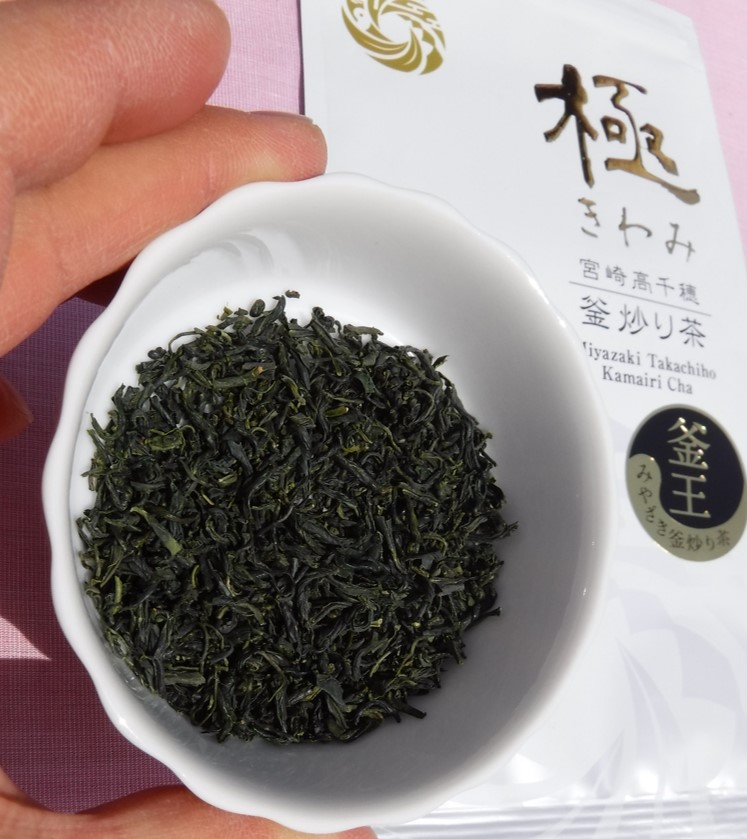
5. 2nd Flush Black tea of Summer Picking produced on Makinohara upland
This specialty black tea is produced by Kanetou Miura-en. Mr. Miura, the tea artist in Kanetou Miura-en has been challenging the further development of Japanese black tea production in Shizuoka prefecture. He has started the production of Japanese tea earlier than the others, by using the facility of open laboratory in the Prefectural Tea Research Center in Shizuoka.
I have loved his black tea since early time he started the production (as posted previously). As implied by the series of awards he got, his master craftsmanship of black tea production is recognized by many people, among not only tea professionals but also general customers.
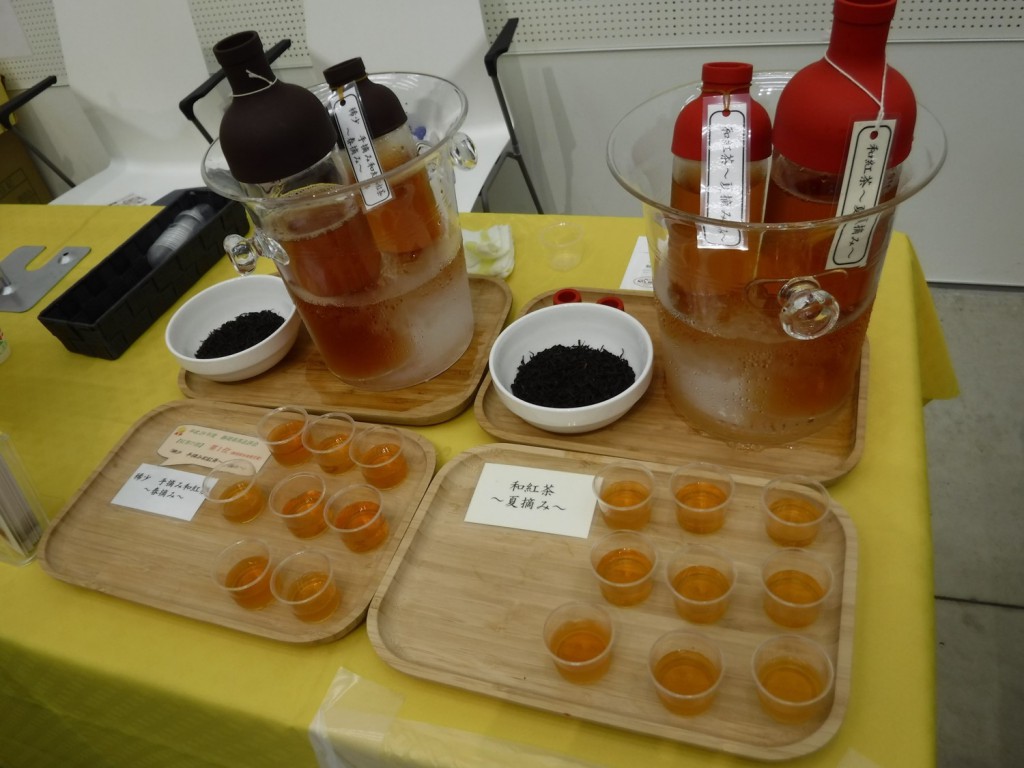
Black teas produced by Kanetou Miura-en. The left one “Premiun Spring Hand Pluck” is prized 1st place in the tea competition in Shizuoka prefecture.
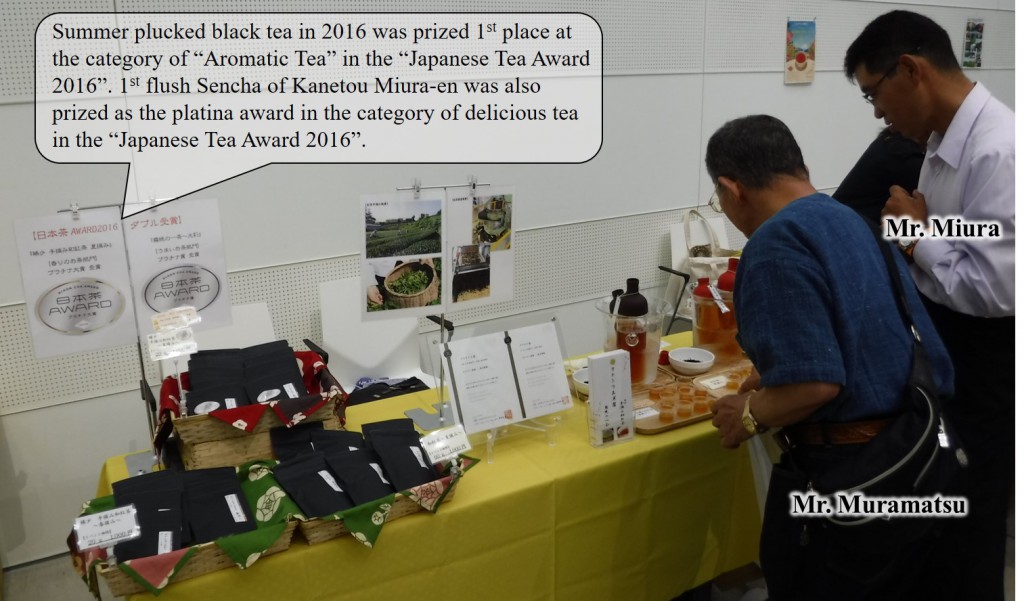
Mr. Miura discussed with Mr. Muramatsu, who is the master craftsman of Japanese black tea in Shizuoka. His black tea was loved by not only customers but also tea professionals.
< Event information >
- Venue : The room for consumers on the ground floor of the north annex of MAFF building.
- Address : 1 chome 2-1, Kasumigaseki, Chiyoda ward, Tokyo.
- Access : 1 minute on foot from A5 Exit of Marunouchi subway line or 3 minutes from A10 Exit of Chiyoda subway line.
